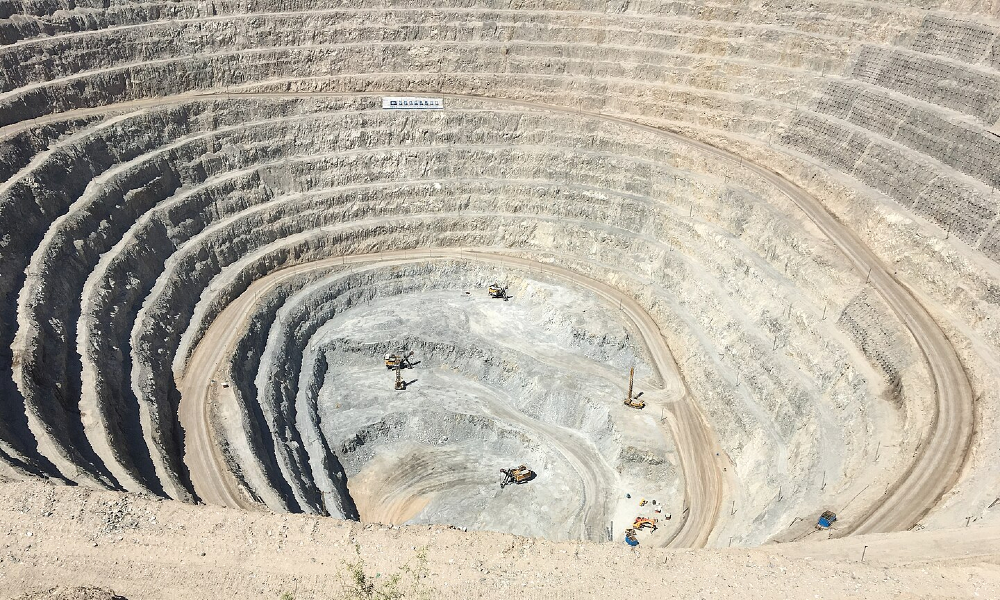Foreign Economic Investment Kills Independence Hopes in Balochistan

Editor’s Note: Lost amid the violence of the latest India-Pakistan dispute was a call for independence by leaders of Pakistan's Balochistan province. Jayita Sarkar of the University of Glasgow explains the reasons for this declaration and why Chinese, Canadian, and other foreign mining and other investments in the province make greater political rights, let alone independence, less likely.
Daniel Byman
***
On May 14, 2025, the leaders of Balochistan, Pakistan’s largest province, declared independence from Pakistan and requested that India and the United Nations recognize its sovereignty. The declaration came amid military airstrikes between India and Pakistan following the terrorist attack in Pahalgam; it stoked nationalism in the Indian media, but was met with silence on international platforms. The Pakistan government has not publicly responded to the declaration of independence but has reportedly increased repression in the province. Even if the declaration garnered more attention, it would be unlikely to succeed. The significant level of foreign investment in Balochistan reinforces the status quo and Pakistan’s control of the province.
Separatist claims are ubiquitous in South Asian nation-states, making interstate conflict both international and domestic. Conflicts between India and its neighbors, China and Pakistan, almost always involve tensions in the borderlands where inhabitants assert separatist claims, such as Punjab, Arunachal Pradesh, Kashmir, and elsewhere.
Separatism in Balochistan is not new. Baloch authorities declined to join the dominion of Pakistan when it achieved independence in August 1947, but were compelled to do so by Pakistan—similar to other parts of decolonized South Asia, such as Travancore and Hyderabad, both of which had initially opposed joining India. Even though Balochistan has extensive natural resources, including natural gas and oil reserves, by the time of Pakistan’s first direct general elections were held in December 1970, it, along with the most populous province of East Pakistan, were Pakistan’s two poorest provinces. From the early 1970s onward, state repression of Baloch nationalists increased, as did violent insurgency, both abetted by Pakistan’s involvement in helping the CIA fight the Soviets along the border with Afghanistan.
State violence has only increased since the start of the 21st century, and has been characterized by some as the “slow-motion genocide” of Balochis. Pakistan’s weak democratic institutions are even weaker in Balochistan, where acute mistrust of the state leads many Balochis to boycott elections, as was the case in 2024. Balochi youth do not feel that Islamabad takes the province’s interests into consideration despite political representation in Pakistan’s National Assembly.
Since 2005, Pakistan’s security forces have undertaken a concerted effort to subdue the Baloch nationalist movement, arguably spurring separatists to call for independence. Most recently, violence in Balochistan and against Balochis has made international headlines and grabbed the UN’s attention as well. In March 2025 alone, several instances of forced disappearances of Baloch human rights activists occurred, allegedly after arrests by Pakistan’s Counterterrorism Department. On the separatists’ side, the Baloch Liberation Army hijacked a train in March 2025, making international headlines that noted their violent opposition to state repression.
Foreign powers are more invested in maintaining the status quo of Pakistan’s control of Balochistan than recognizing its independence. This is due to interests related to what I have called “territoriality” and “technopolitics” in my last book—namely, geopolitics and developmentalism. Not only do Baloch territorial claims involve parts of Iran and Afghanistan— claims that neither country accepts—but Pakistan’s Balochistan province also has reserves of valuable minerals, including gold, copper, and lithium. It also has oil reserves and is the site of Pakistan’s largest natural gas field. China has funded massive infrastructure projects for decades as part of the China-Pakistan Economic Corridor, including the Chinese-built and -operated deep-sea port of Gwadar, close to Pakistan’s border with Iran.
The foreign presence in Balochistan is the Pakistani government’s strongest insurance against its independence. An independent Balochistan would affect the investments of several foreign actors; for their own interests, these private and state-owned companies would oppose a move toward international recognition of its actual or potential political sovereignty. China’s state-owned Metallurgical Corporation of China Ltd. runs the Saindak Copper-Gold Project in the Chagai district, where Pakistan’s nuclear weapons test site is also located. Half of the revenue from this mining operation goes to the Chinese government, while 48 percent goes to the Pakistan government and only 2 percent to the provincial Balochistan government. The other major mining site in the Chagai is the Reko Diq mine, which is 50-percent owned by Canada-based Barrick Gold Corporation, with the governments of Pakistan and Balochistan owning 25 percent each. Saudi Arabia’s Manara Minerals is also expected to buy a stake in the mine, while the World Bank has agreed to provide $300 million in debt financing for the project.
Instead of bringing development to the people of Balochistan, such investment has enriched foreign companies while setting back Balochi’s hopes for more political rights and economic progress. Foreign mining companies and infrastructure development have allowed the Pakistani state to repress Baloch activists and civilians in the name of protecting foreign investments, making these actors willing partners in repression. The economic logic of profit has overshadowed the political rights of the province.
Two analogous cases can help make sense of the present and future of Balochistan: Xinjiang province in current-day China and Namibia when it was under the control of Apartheid-era South Africa. Neither gives much hope for Balochis who want a politically sovereign nation-state of their own.
State presence in both Xinjiang and Balochistan takes the form of violent repression of minority groups—the Uyghurs in Xinjiang and the Balochi in Balochistan—and infrastructure projects involving mineral extraction and nuclear weapons tests. Like Xinjiang, which hosts China’s Lop Nur nuclear weapons test site, Balochistan hosts Pakistan’s nuclear weapons test site in the Chagai Hills, where Islamabad conducted six nuclear tests in May 1998. Balochistan was chosen not merely because of its topography, but also because its ethnic Balochi population was not considered equal to the Punjabis, who are the core state identity as perceived from the political capital. China’s exploitation and persecution of the Uyghurs in resource-rich Xinjiang province has been more broadly severe, involving widespread surveillance, “reeducation” camps, and forced labor. While Pakistan might lack the state capacity of China, it will likely continue to repress political dissent in Balochistan in order to preserve the foreign direct investments in mining, making the foreign actors into implicit supporters of its repression in the province.
Balochistan’s situation has another analog in Namibia, the mineral-rich territory that was once a German colony and later controlled by Apartheid-era South Africa until its independence in 1990. Endowed with natural resources such as diamonds, gold, uranium, copper, and other precious minerals, Namibian territory was mined to serve the commercial interests of South African, Western European, and North American companies, including De Beers, a South African company, Rio Tinto Zinc, a British-Australian venture, and others. Not only did these companies have a strong incentive to keep Namibia under the control of South Africa’s Apartheid regime, but by the 1980s, investigations revealed that these companies, fearing that a decolonized Namibia might evict them, began to overmine and export the mined materials abroad at a very fast pace.
A similar set of companies is invested in the stability and political continuity of Balochistan. Just in April 2025, Barrick’s CEO, South African businessman Mark Bristow, declared in Islamabad that he was looking forward to forging ahead with the “world’s largest undeveloped copper-gold projects” at Reko Diq in Balochistan. Last year, Australian Tim Cribb, Barrick’s country director for Reko Diq and a former Rio Tinto Zinc mining engineer, presented at the New York Stock Exchange the various social projects that Barrick is expecting to contribute to in Balochistan.
Balochistan is thus a haven for foreign companies building infrastructure. Even if developmentalism leads to further impoverishment of the Baloch people—like the Gwadar port, which despite being an expensive infrastructure project did not bring economic prosperity—it will be sure to kill any possibility of independence for Balochistan. Violence is likely to continue on both sides since the time for a political solution has long passed.


-1928c983-394b-444d-b1ec-f6590b7d9fee.jpeg?sfvrsn=78498e1e_7)


